

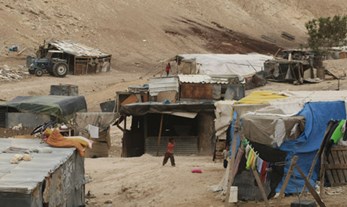
Regulating Bedouin Settlement: A Disengagement Plan for the Negev
Written By: Ronit Levine-Schnur
Ronit Levine-Schnur analyzes the Bill to Regulate Bedouin Settlement in the Negev 5773–2013, warns that it seems to be motivated by an exaggerated fear of a Bedouin takeover of the Negev, and offers an alternative approach.

Civil Unions in Israel as a Democratic Compromise
Written By: Prof. Shahar Lifshitz
Prof. Shahar Lifshitz, author of an IDI policy paper proposing a spousal registry as a framework for civil unions in Israel, welcomes the reintroduction of this issue to the public agenda but expresses some concern about the formulation of the current bill.

On the Need for Civil Unions in Israel
Written By: Benjamin (Benny) Lau
Rabbi Dr. Benjamin (Benny) Lau expresses support for the proposed civil union bill, which would allow couples who do not want to marry in a religious service to form a legally recognized union and be eligible for the benefits and responsibilities associated with marriage.

Sir Isaac Newton and the New Haredim
Written By: Prof. Yedidia Z. Stern
Prof. Yedidia Stern shares thoughts on the connection between failure of the ultra-Orthodox "Tov" party in the local elections, the Haredi draft bill being debated by the Shaked Committee, and Newton's laws of motion.

Separating the Prosecution from the Police
Written By: Prof. Mordechai Kremnitzer, Dr. Guy Lurie
Most criminal cases in Israel are prosecuted by the Israel Police rather than by the State Prosecutor. Prof. Mordechai Kremnitzer and Dr. Guy Lurie call for a division that would make the Police responsible for investigations and the State Prosecutor responsible for indictments and trials.

The Contributors to the State Bill: Contributing to the Jewish-Arab Divide
Written By: Dr. Talya Steiner, Prof. Mordechai Kremnitzer
Prof. Mordechai Kremnitzer and Att. Talya Steiner warn that the veteran's benefit bill, which is intended to extend benefits to those who have contributed to the State, discriminates against Israel's Arab citizens, who are exempt from military service in Israel.

The Israeli Municipal Elections 2013: Some Preliminary Findings
Written By: Nir Atmor, Dr. Dana Blander, Dr. Assaf Shapira
Dr. Nir Atmor, Dr. Dana Blander, and Assaf Shapira share some preliminary findings on voter turnout and women's representation in the Israeli municipal elections of 2013.

"Who Made Me a Woman": Women in Ultra-Orthodox Society
Written By: Lee Cahaner
A series of Hebrew videos on the historical processes behind the development of the role of ultra-Orthodox women in the family and society, which were developed as part of IDI's research projects on the Nation State and on the Integration of Haredim in Israeli Society.
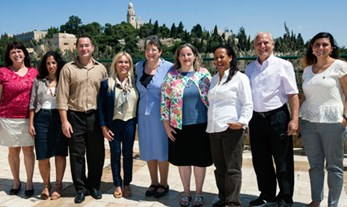
Women and Israeli Local Politics – A Natural Fit
Written By: Moran Nagid
More women than ever are running for Israeli municipal government in the local elections of 2013, but is it enough? Moran Nagid surveys the appeal of local politics for women and suggests a means of improving the situation.

On the Decline in Voter Participation in Municipal Elections in Israel
Written By: Dr. Assaf Shapira
Why is voter participation in local elections in Israel so low? Assaf Shapira explains the reasons behind this phenomenon, discusses its implications, and offers possible remedies.

Remembering Rabin: Attitudes toward Political Violence in Israel 2013
Written By: IDI Website Staff
How do Israelis feel about political violence today, 18 years after the assassination of Prime Minister Yitzhak Rabin? As Israel commemorates Rabin Memorial Day, consider the following findings of the 2013 Israeli Democracy Index.

The Israeli Democracy Index: A Periodic Check-Up
Written By: Prof. Tamar Hermann
Prof. Tamar Hermann, head of IDI's Guttman Center for Surveys, discusses the findings of the 2013 Israeli Democracy Index, which was submitted to President Shimon Peres on October 6, 2013.

Blind to the Rights of the Disabled
Written By: Benjamin (Benny) Lau
In an article in The Jewish Week, Rabbi Dr. Benjamin (Benny) Lau calls on religious authorities who hold human rights dear to find a way to allow people with disabilities to have access to the Western Wall plaza.

The Israeli Democracy Index A Periodic Check-Up
Written By: Prof. Tamar Hermann
Each year, the Israel Democracy Institute checks the health of Israeli democracy by means of the annual Israeli Democracy Index. In an op-ed in Yedioth Ahronoth, Prof. Tamar Hermann discusses the 2013 Index, which was submitted to President Shimon Peres on October 6, 2013.
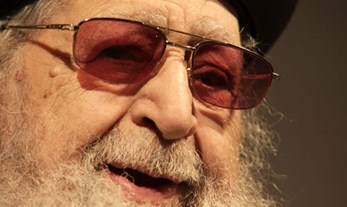
Did You See the Tears of the Oppressed?
Rabbi Dr. Benjamin (Benny) Lau, head of IDI's Human Rights and Judaism in Action project, remembers Rabbi Ovadia Yosef as a courageous halakhic decisor who championed the needs of the oppressed.

What Can We Learn about Israeli Policy Making from the Supreme Court's Ruling on the Anti-Infiltration Law?
Written By: Dr. Talya Steiner
Attorney Talya Steiner warns that a Supreme Court's judgment that struck down an amendment of Israel's anti-infiltration law as unconstitutional points to significant flaws in Israel's process of policy-making.

A Professional Assessment of the Governance Bills
Written By: Prof. Gideon Rahat
A professional assessment of proposed changes to Basic Law: The Government and the Election Bill, which was submitted by Prof. Gideon Rahat to MK David Rotem, Chairman of the Knesset Constitution, Law and Justice Committee.

The Israeli Economy: Has the Melting Pot Succeeded?
Written By: Momi Dahan
A study conducted by IDI Senior Fellow Prof. Momi Dahan that reveals that there has been a continuous narrowing of income gaps between Israelis of European-American origins and of Asian-African origins since the 1990s.
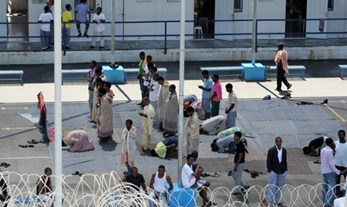
Quashing Legislation Mandating Lengthy Detention of Asylum-Seekers
Written By: Prof. Reuven (Ruvi) Ziegler
Dr. Reuven (Ruvi) Ziegler shares observations on the decision of the Israeli Supreme Court that an amendment of the Prevention of Infiltration Law that mandated lengthy detention of asylum seekers is unconstitutional.
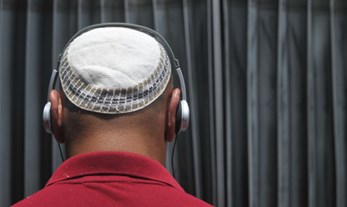
No to the Separation of Religion and State in Israel
Written By: Yair Sheleg
Should the American model of separation of church and state be applied to Israel? In an article in <em>The Jewish Week</em>, IDI's Yair Sheleg argues that Israel needs a unique model.

From Institutions to Community Housing
Rabbi Dr. Benjamin Lau, head of IDI's Human Rights and Judaism in Action project, presents the transition from institutions to homes in the community for people with disabilities as a Jewish imperative.

Standing before God: Reflections on Yom Kippur
Written By: Yair Sheleg
Why is Yom Kippur the most significant day on the Jewish calendar? What explains its appeal even to people who define themselves as "secular"? IDI research fellow Yair Sheleg shares his thoughts on this matter.

The High Holidays: A Personal and National Time
Written By: Prof. Yedidia Z. Stern
Prof. Yedidia Z. Stern shares thoughts on the Hebrew calendar, which contributes to Jewish unity and preserves the Jewish people as a single national and cultural unit.

Life Under Two Suns: When Human Rights and Jewish Values Collide
Written By: Prof. Yedidia Z. Stern, Jay Ruderman
The first in a series of articles by researchers from IDI's Judaism and democracy projects and Human Rights and Judaism project on the complementary but tense relations between Judaism and democratic values.

How Can We Draft the Ultra-Orthodox with Consent?
Written By: Prof. Yedidia Z. Stern
Is it possible to draft the ultra-Orthodox and integrate them into Israel's society and economy in a mutually-agreeable manner that encourages solidarity between the different sectors of the Jewish people? Prof. Yedidia Z. Stern shares thoughts on wars between brothers and brothers-in-arms.

Clearing up the Confusion on Cairo
Written By: Dr. Jesse Ferris
As the United States debates whether or not to cut aid to Egypt in the aftermath of the military-led ouster of President Muhammad Mursi, IDI Vice President of Strategy Dr. Jesse Ferris makes the case for increasing US aid to Egypt.
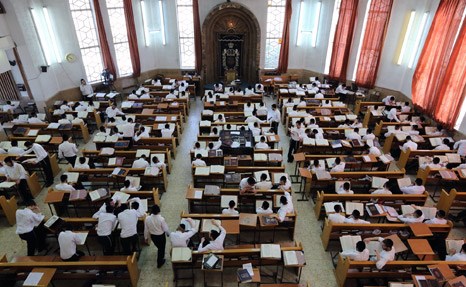
The Ultra-Orthodox Draft: Crossing the Third Rubicon
Written By: Prof. Yedidia Z. Stern, Haim Zicherman
Prof. Yedidia Z. Stern and Attorney Haim Zicherman stress the need to break down barriers that are preventing Haredi service in the army and integration in the labor force, and warn against passing a popular but ill-advised reform.

The Jewish and Democratic State: Zionism is Not Racism
Written By: Dr. Amir Fuchs
In an op-ed in Haaretz, Attorney Amir Fuchs asserts that Israel is both the nation-state of the Jewish people and a democratic state, despite the confused Zionism of Mayor Shimon Gapso of Upper Nazareth.

The Jewish and Democratic State: Zionism is Not Racism
Written By: Dr. Amir Fuchs
In an op-ed in <em>Haaretz</em>, IDI researcher Attorney Amir Fuchs asserts that Israel is both the nation-state of the Jewish people and a democratic state, despite the confused Zionism of Mayor Shimon Gapso of Upper Nazareth.

Who Represents Equality – The Attorney General or the Equality of Opportunity Commission?
Written By: Prof. Mordechai Kremnitzer, Dr. Talya Steiner
Should the State always present its position in a unified voice or should state institutions with specific expertise sometimes be allowed to present their views separately? Prof. Mordechai Kremnitzer and Attorney Talya Steiner address this question In an op-ed in Haaretz.

